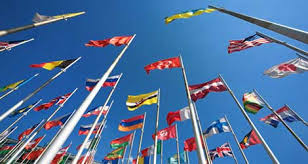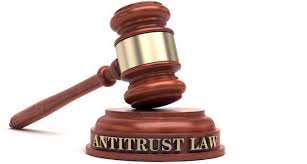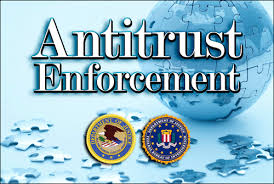Antitrust Update: The Aggressive Global Enforcement Network
 Companies face lots of risks – the soup du jour has been anti-corruption enforcement and compliance.
Companies face lots of risks – the soup du jour has been anti-corruption enforcement and compliance.
Like any consistent restaurant you might visit regularly, one risk continues to grow, quietly and significantly – antitrust criminal enforcement.
Sure, I could have written a posting about the recent foreign exchange current price-fixing conspiracy among many of the large financial institutions, and trumpeted the $3.2 billion settlements recently announced by the Justice Department. But that is just one part of a much bigger story.
Global cartel enforcement is a mature and successful enforcement system that has grown over the last 20 years. The United States has led the way – there is no question about that. The Antitrust Division’s Leniency program has been remarkably successful in breaking up many significant cartels.
Adding to this has been the entry of many other countries into the global cartel enforcement system. Law enforcement agencies around the world have become more sophisticated and have relied on coordinated efforts to investigate and prosecute global cartels.
The Antitrust Division continues to increase the collection of criminal fines against companies for cartel activity. Last fiscal year, the Antitrust Division secured a record of $1.27 billion in criminal fines. The Antitrust Division’s global reach was demonstrated by its successful extradition of two individuals to face criminal charges in the United States courts.
The Antitrust Division’s criminal investigation against auto parts suppliers continues to unfold as more companies and individuals have been charged. It is the largest criminal antitrust investigation ever conducted and extends to numerous markets related to auto supply. The Justice Department has charged over 50 individuals and secured guilty pleas from over 34 companies and imposed more than $2.5 billion in fines.
New and active cartel investigations are expected to bear fruit this year. These investigations involve precious metal markets, generic pharmaceuticals and capacitors.
Of the three mentioned above, the investigation of capacitors has been more active than the other two. China’s antitrust enforcement agency has raided several capacitor manufacturers and percolating civil litigation in the United States have alleged a number of broad conspiracies among 20 manufacturers of capacitors.
The generic pharmaceutical cartel investigation is also gathering steam. Three generic manufacturers have disclosed they have received DOJ subpoenas. Also, DOJ issued a second subpoena to one of the original subpoena recipients. Generic pharmaceutical companies that compete with these companies would be well advised to examine the potential for liability.
The extraterritorial reach of the United States Antitrust laws and the Foreign Trade Antitrust Improvements Act continue to preoccupy courts. The Seventh Circuit’s decision in Motorola Mobility (available here) reduced the financial exposure of companies that participate in cartels to private litigation.
 The European Commission continues to impose record fine levels on companies. In 2014, the EU imposed penalties of approximately 1.7 Euros against companies for participating in illegal cartels.
The European Commission continues to impose record fine levels on companies. In 2014, the EU imposed penalties of approximately 1.7 Euros against companies for participating in illegal cartels.
Brazil is a new and important country committed to aggressive antitrust enforcement. Other jurisdictions outside the US and EU are following. More countries are coordinating enforcement actions and investigations, and joining together to share important information needed to prosecute companies in multiple jurisdictions. Japan, South Korea, Australia and New Zealand are steadily increasing their respective roles in antitrust enforcement.
















1 Response
[…] donations. The FCPAProfessor tracks the PetroTiger CEO’s plea and sentence. Mike Volkov provides an anti-trust update. The FCPA Blog reports on a whistleblower […]